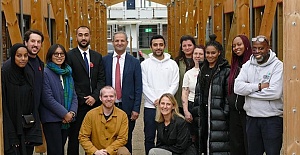Many researches have emphasized the changing meaning of belonging and home in the context of migration, highlighting the stretching of their meaning between the local context of the destination country and global ties in relation to the country of destination and transnational ties formed by migration. For instance, some highlights the fact that belonging and home are defined in relation to everyday life experiences and even more precisely by social relations. Taking into account the new practices of migrants within specific places and societies, they argue that these notions are transformed through the experiences of migrants and their negotiation processes. Therefore, makes a case for the reconceptualising of home in relation to places that people inhabit with others. In other words, the meaning of home has shifted from the old paradigms that connect the issue of belonging with notions of mother tongue and fatherland. Home is now a dynamic concept which changes meanings between people. It is a multiple concept which is identified with the social world people live in. In this sense, it also includes a sense of self: young people’s relation to places and their experiences could make a place ‘home’. So, home is not necessarily a fixed and bounded place; it represents relationships to people.
In the case of second generation migrants from Turkey and Cyprus living in London, the country of origin is not the main place they spend most of their time and socialise: they have built their lives in the receiving country and are familiar with the social life and regulations of the receiving society. They were either born or raised in London from an early age. London represents everyday life for them as their schools, friends, and parents are based in London. They experience different forms of belonging in the places they interact and understand different aspects of the country of origin, the specific urban space in North London where they live, and London as a whole where they experience various cultures.
They make choices about what to accept and what to ignore in those places and create a space which mixes different elements of these places into one. Their social networks, social life, family, school, friendships, and habits are the main aspects in their definition of ‘home’. However, at the same time some considers living in the country of origin in the future. They have multiple homes which are transformed through the negotiation of the social life of the places they interact and their experiences within these places. Belonging is challenged and participation in social life in these places is negotiated. It is not based on young people’s national entitlement; it is associated with the everyday experiences of young people and the meaning they give to these places and their social world.


 Prime Minister Keir Starmer's 2025 Easter message
Prime Minister Keir Starmer's 2025 Easter message After Nesil Caliskan a by-election will be held in Jubilee ward in Enfield
After Nesil Caliskan a by-election will be held in Jubilee ward in Enfield Publishing the analysis, Labour’s Cllr Ergin Erbil said Everybody in Enfield deserves basic rights
Publishing the analysis, Labour’s Cllr Ergin Erbil said Everybody in Enfield deserves basic rights Gaza-Israel conflict Statement from Cllr Ergin Erbil, Leader of Enfield Council
Gaza-Israel conflict Statement from Cllr Ergin Erbil, Leader of Enfield Council The European Union called on Turkey to uphold democratic values
The European Union called on Turkey to uphold democratic values Turkish citizens in London said Rights, Law, Justice
Turkish citizens in London said Rights, Law, Justice The Council of Turkish Cypriot Associations Geneva response letter
The Council of Turkish Cypriot Associations Geneva response letter Sustainable Development and ESG, Will This Become the Course for Turkic World
Sustainable Development and ESG, Will This Become the Course for Turkic World The 'Prince of Paris' has impressed in his first EuroLeague season
The 'Prince of Paris' has impressed in his first EuroLeague season Saran Media And Euroleague Basketball Extend Media Rights Partnership for Four More Years
Saran Media And Euroleague Basketball Extend Media Rights Partnership for Four More Years Will Rangers be Jose Mourinho’s next victim?
Will Rangers be Jose Mourinho’s next victim? Jose Mourinho's Fenerbahce face Rangers on Thursday
Jose Mourinho's Fenerbahce face Rangers on Thursday Barclays has become the biggest UK lender so far to cut mortgage rates
Barclays has become the biggest UK lender so far to cut mortgage rates THE SPRING STATEMENT EXPLAINED, UK ECONOMIC OUTLOOK AND GROWTH FORECASTS
THE SPRING STATEMENT EXPLAINED, UK ECONOMIC OUTLOOK AND GROWTH FORECASTS Launch of Made in Enfield gift shop to celebrate local artists and designers
Launch of Made in Enfield gift shop to celebrate local artists and designers Trial used smart Wi-Fi sensors for live building occupancy data to optimise
Trial used smart Wi-Fi sensors for live building occupancy data to optimise

















